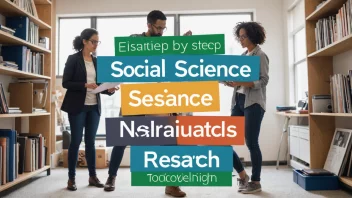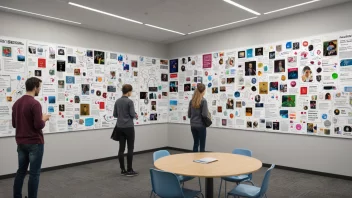Introduction
In an increasingly interconnected world, the role of research in fostering global cooperation has never been more critical. This article will guide you through the steps to understand how research can bridge divides, promote collaboration, and ultimately lead to a more cooperative global community. By the end of this guide, you will have a clearer perspective on how to engage in and support research initiatives that encourage international partnerships.
Step 1: Understand the Importance of Global Research Collaboration
Global research collaboration is essential for addressing complex challenges that transcend national borders, such as climate change, pandemics, and technological advancements. Here’s how to grasp its significance:
- Identify Global Issues: Recognize the pressing global challenges that require collective action.
- Benefits of Collaboration: Understand how shared resources, knowledge, and expertise can lead to innovative solutions.
- Historical Context: Explore past successful collaborations and their impact on global cooperation.
Step 2: Engage with International Research Networks
Connecting with existing research networks can enhance your understanding and involvement in global cooperation. Follow these steps:
- Identify Relevant Networks: Research organizations that focus on international collaboration in your field.
- Join Conferences: Attend international conferences to network with researchers from around the world.
- Participate in Workshops: Engage in workshops that promote cross-border collaboration and knowledge sharing.
Step 3: Promote Open Access and Sharing of Research Findings
Open access to research findings is crucial for fostering global cooperation. Here’s how you can support this initiative:
- Publish in Open Access Journals: Choose to publish your research in journals that allow free access to all.
- Share Data: Make your research data available to other researchers globally.
- Advocate for Open Science: Support policies that promote transparency and accessibility in research.
Step 4: Collaborate on International Research Projects
Engaging in collaborative projects can significantly enhance global cooperation. Here’s how to get started:
- Identify Partners: Find researchers or institutions in other countries with similar interests.
- Develop Joint Proposals: Work together to create research proposals that address global challenges.
- Seek Funding: Look for grants or funding opportunities that support international collaboration.
Step 5: Foster Cultural Exchange Through Research
Cultural exchange is a vital component of global cooperation. Here’s how to promote it through research:
- Exchange Programs: Participate in or establish exchange programs for researchers.
- Collaborative Publications: Co-author papers with researchers from different cultural backgrounds.
- Host International Workshops: Organize workshops that bring together diverse perspectives and methodologies.
Step 6: Advocate for Policy Changes Supporting Global Research
Influencing policy is key to facilitating global cooperation in research. Here’s how to advocate effectively:
- Stay Informed: Keep up with policies affecting international research collaboration.
- Engage with Policymakers: Communicate with local and international policymakers about the importance of global research.
- Join Advocacy Groups: Collaborate with organizations that promote supportive policies for international research.
Conclusion
In summary, fostering global cooperation through research involves understanding the importance of collaboration, engaging with international networks, promoting open access, collaborating on projects, fostering cultural exchange, and advocating for supportive policies. By following these steps, you can contribute to a more cooperative and innovative global research community. Remember, every effort counts, and your involvement can make a significant difference in addressing global challenges.






